-
About
- About Listly
- Community & Support
- Howto
- Chrome Extension
- Bookmarklet
- WordPress Plugin
- Listly Premium
- Privacy
- Terms
- DMCA Copyright
- © 2010-2025 Boomy Labs


 E K
E K
Listly by E K
It's up to you to vote on or even add a book that isn't on this list.
Source: https://www.bookadvice.co/
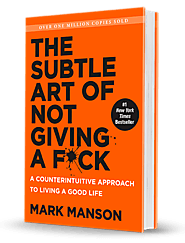
**#1 New York Times Bestseller
Over 3 million copies sold**
In this generation-defining self-help guide, a superstar blogger cuts through the crap to show us how to stop trying to be "positive" all the time so that we can truly become better, happier people.
For decades, we’ve been told that positive thinking is the key to a happy, rich life. "Fxxk positivity," Mark Manson says. "Let’s be honest, shit is fxxked and we have to live with it." In his wildly popular Internet blog, Manson doesn’t sugarcoat or equivocate. He tells it like it is—a dose of raw, refreshing, honest truth that is sorely lacking today. The Subtle Art of Not Giving a F**k is his antidote to the coddling, let’s-all-feel-good mindset that has infected modern society and spoiled a generation, rewarding them with gold medals just for showing up.
Manson makes the argument, backed both by academic research and well-timed poop jokes, that improving our lives hinges not on our ability to turn lemons into lemonade, but on learning to stomach lemons better. Human beings are flawed and limited—"not everybody can be extraordinary, there are winners and losers in society, and some of it is not fair or your fault." Manson advises us to get to know our limitations and accept them. Once we embrace our fears, faults, and uncertainties, once we stop running and avoiding and start confronting painful truths, we can begin to find the courage, perseverance, honesty, responsibility, curiosity, and forgiveness we seek.
There are only so many things we can give a fxxk about so we need to figure out which ones really matter, Manson makes clear. While money is nice, caring about what you do with your life is better, because true wealth is about experience. A much-needed grab-you-by-the-shoulders-and-look-you-in-the-eye moment of real-talk, filled with entertaining stories and profane, ruthless humor, The Subtle Art of Not Giving a Fxxk is a refreshing slap for a generation to help them lead contented, grounded lives.
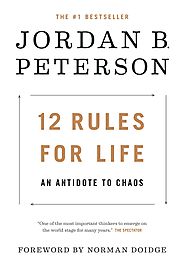
#1 NATIONAL BESTSELLER
#1 INTERNATIONAL BESTSELLER
What does everyone in the modern world need to know? Renowned psychologist Jordan B. Peterson's answer to this most difficult of questions uniquely combines the hard-won truths of ancient tradition with the stunning revelations of cutting-edge scientific research.
Humorous, surprising and informative, Dr. Peterson tells us why skateboarding boys and girls must be left alone, what terrible fate awaits those who criticize too easily, and why you should always pet a cat when you meet one on the street.
What does the nervous system of the lowly lobster have to tell us about standing up straight (with our shoulders back) and about success in life? Why did ancient Egyptians worship the capacity to pay careful attention as the highest of gods? What dreadful paths do people tread when they become resentful, arrogant and vengeful? Dr. Peterson journeys broadly, discussing discipline, freedom, adventure and responsibility, distilling the world's wisdom into 12 practical and profound rules for life. 12 Rules for Life shatters the modern commonplaces of science, faith and human nature, while transforming and ennobling the mind and spirit of its readers.
Review
“Like the best intellectual polymaths, Peterson invites his readers to embark on their own intellectual, spiritual and ideological journeys into the many topics and disciplines he touches on. It’s a counter-intuitive strategy for a population hooked on the instant gratification of ideological conformity and social media ‘likes,’ but if Peterson is right, you have nothing to lose but your own misery.” —Toronto Star
“In a different intellectual league. . . . Peterson can take the most difficult ideas and make them entertaining. This may be why his YouTube videos have had 35 million views. He is fast becoming the closest that academia has to a rock star.” —The Observer
“Grow up and man up is the message from this rock-star psychologist. . . . [A] hardline self-help manual of self-reliance, good behaviour, self-betterment and individualism that probably reflects his childhood in rural Canada in the 1960s. As with all self-help manuals, there’s always a kernel of truth. Formerly a Harvard professor, now at the University of Toronto, Peterson retains that whiff of cowboy philosophy—one essay is a homily on doing one thing every day to improve yourself. Another, on bringing up little children to behave, is excellent…. [Peterson] twirls ideas around like a magician.” —Melanie Reid, The Times
“You don’t have to agree with [Peterson’s politics] to like this book for, once you discard the self-help label, it becomes fascinating. Peterson is brilliant on many subjects. . . . So what we have here is a baggy, aggressive, in-your-face, get-real book that, ultimately, is an attempt to lead us back to what Peterson sees as the true, the beautiful and the good—i.e. God. In the highest possible sense of the term, I suppose it is a self-help book. . . . Either way, it’s a rocky read, but nobody ever said God was easy.” —Bryan Appleyard, The Times
“One of the most eclectic and stimulating public intellectuals at large today, fearless and impassioned.” —The Guardian
“Someone with not only humanity and humour, but serious depth and substance. . . . Peterson has a truly cosmopolitan and omnivorous intellect, but one that recognizes that things need grounding in a home if they are ever going to be meaningfully grasped. . . . As well as being funny, there is a burning sincerity to the man which only the most withered cynic could suspect.” —The Spectator
“Peterson has become a kind of secular prophet who, in an era of lobotomized conformism, thinks out of the box. . . . His message is overwhelmingly vital.” —Melanie Philips, The Times
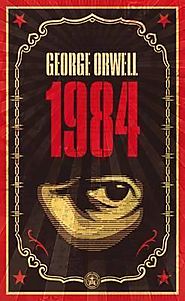
Among the seminal texts of the 20th century, Nineteen Eighty-Four is a rare work that grows more haunting as its futuristic purgatory becomes more real. Published in 1949, the book offers political satirist George Orwell’s nightmare vision of a totalitarian, bureaucratic world and one poor stiff’s attempt to find individuality. The brilliance of the novel is Orwell’s prescience of modern life — the ubiquity of television, the distortion of the language — and his ability to construct such a thorough version of hell. Required reading for students since it was published, it ranks among the most terrifying novels ever written.
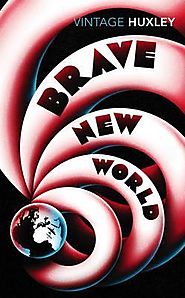
With introductions by Margaret Atwood and David Bradshaw. Far in the future, the World Controllers have created the ideal society. Through clever use of genetic engineering, brainwashing and recreational sex and drugs all its members are happy consumers. Bernard Marx seems alone harbouring an ill-defined longing to break free. A visit to one of the few remaining Savage Reservations where the old, imperfect life still continues, may be the cure for his distress...Huxley's ingenious fantasy of the future sheds a blazing light on the present and is considered to be his most enduring masterpiece.
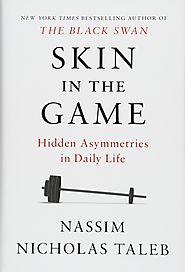
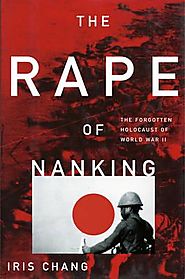
In December 1937, the Japanese army swept into the ancient city of Nanking. Within weeks, more than 300,000 Chinese civilians and soldiers were systematically raped, tortured, and murdered,a death toll exceeding that of the atomic blasts of Hiroshima and Nagasaki combined. Using extensive interviews with survivors and newly discovered documents, Iris Chang has written the definitive history of this horrifying episode.
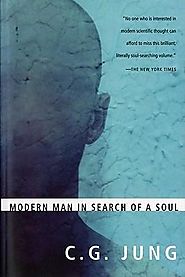
A provocative and enlightening look at spiritual unease and its contribution to the void in modern civilization
Considered by many to be one of the most important books in the field of psychology, Modern Man in Search of a Soul is a comprehensive introduction to the thought of Carl Gustav Jung. In this book, Jung examines some of the most contested and crucial areas in the field of analytical psychology, including dream analysis, the primitive unconscious, and the relationship between psychology and religion. Additionally, Jung looks at the differences between his theories and those of Sigmund Freud, providing a valuable basis for anyone interested in the fundamentals of psychoanalysis.
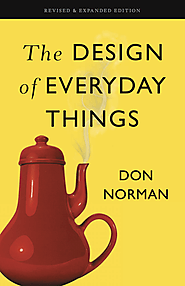
Even the smartest among us can feel inept as we fail to figure out which light switch or oven burner to turn on, or whether to push, pull, or slide a door. The fault, argues this ingenious-even liberating-book, lies not in ourselves, but in product design that ignores the needs of users and the principles of cognitive psychology. The problems range from ambiguous and hidden controls to arbitrary relationships between controls and functions, coupled with a lack of feedback or other assistance and unreasonable demands on memorization. The Design of Everyday Things shows that good, usable design is possible. The rules are simple: make things visible, exploit natural relationships that couple function and control, and make intelligent use of constraints. The goal: guide the user effortlessly to the right action on the right control at the right time. In this entertaining and insightful analysis, cognitive scientist Donald A. Norman hails excellence of design as the most important key to regaining the competitive edge in influencing consumer behavior.
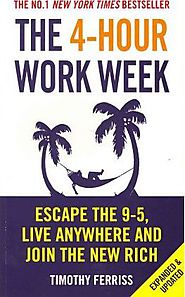
This step-by step guide to luxury lifestyle design teaches:
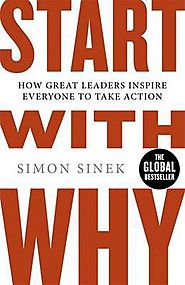
Simon Sinek's recent video on 'The Millennial Question' went viral with over 150 million views.
Start with Why is a global bestseller and the TED Talk based on it is the third most watched of all time.
Why are some people and organisations more inventive, pioneering and successful than others? And why are they able to repeat their success again and again?
In business, it doesn't matter what you do, it matters WHY you do it.
Start with Why analyses leaders like Martin Luther King Jr and Steve Jobs and discovers that they all think in the same way - they all started with why.
Simon Sinek explains the framework needed for businesses to move past knowing what they do to how they do it, and then to ask the more important question-WHY?
Why do we do what we do? Why do we exist? Learning to ask these questions can unlock the secret to inspirational business. Sinek explains what it truly takes to lead and inspire and how anyone can learn how to do it.
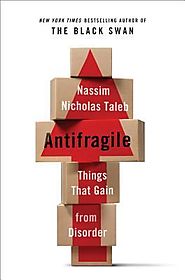
From the bestselling author of The Black Swan and one of the foremost philosophers of our time, Nassim Nicholas Taleb, a book on how some systems actually benefit from disorder.
In The Black Swan Taleb outlined a problem; in Antifragility he offers a definitive solution: how to gain from disorder and chaos while being protected from fragilities and adverse events. For what he calls the "antifragile" is one step beyond robust, as it benefits from adversity, uncertainty and stressors, just as human bones get stronger when subjected to stress and tension.
Taleb stands uncertainty on its head, making it desirable, and proposing that things be built in an antifragile manner. Extremely ambitious and multidisciplinary, Antifragility provides a blueprint for how to behave-and thrive-in a world we don't understand and which is too uncertain for us to even try to understand. He who is not antifragile will perish. Why is the city state better than the nation state, why is debt bad for you, and why is almost everything modern bound to fail? The book covers innovation, health, biology, medicine, life decisions, politics, foreign policy, urban planning, war, personal finance, and economic systems. Throughout, the voice and recipes of the ancient wisdom from Phoenician, Roman, Greek, and Medieval sources are heard loud and clear.
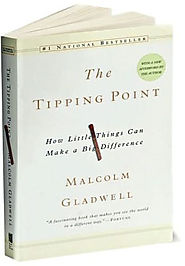
In this brilliant and original book, Malcolm Gladwell explains and analyses the 'tipping point', that magic moment when ideas, trends and social behaviour cross a threshold, tip and spread like wildfire. Taking a look behind the surface of many familiar occurrences in our everyday world, Gladwell explains the fascinating social dynamics that cause rapid change.
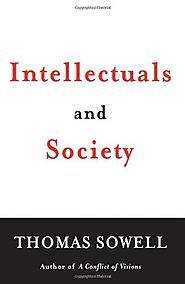
Intellectuals are defined as "idea workers" that exercise profound influence on policy makers and public opinion, but are often not directly accountable for the results. Intellectuals and Society examines the record of these idea workers and the conditions, methods and incentives driving their points of view that, according to Sowell, have often resulted in disaster for societies where intellectuals have been allowed "undue influence". As Sowell expresses it:
Those whose careers are built on the creation and dissemination of ideas — the intellectuals — have played a role in many societies out of all proportion to their numbers. Whether that role has, on balance, made those around them better off or worse off is one of the key questions of our times.
The quick answer is that intellectuals have done both. But certainly, during the 20th century, it is hard to escape the conclusion that intellectuals have on balance made the world a worse and more dangerous place. Scarcely a mass-murdering dictator of the 20th century was without his supporters, admirers, or apologists among the leading intellectuals — not only within his own country, but in foreign democracies, where intellectuals were free to say whatever they wanted.
...intellectuals are people whose end products are intangible ideas, and they are usually judged by whether those ideas sound good to other intellectuals or resonate with the public. Whether their ideas turn out to work — whether they make life better or worse for others — is another question entirely.
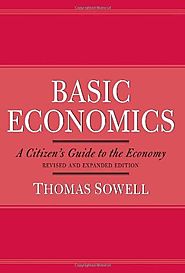
Basic Economics is a citizen's guide to economics-for those who want to understand how the economy works but have no interest in jargon or equations. Sowell reveals the general principles behind any kind of economy-capitalist, socialist, feudal, and so on. In readable language, he shows how to critique economic policies in terms of the incentives they create, rather than the goals they proclaim. With clear explanations of the entire field, from rent control and the rise and fall of businesses to the international balance of payments, this is the first book for anyone who wishes to understand how the economy functions.
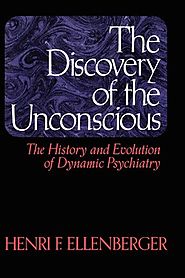
This classic work is a monumental, integrated view of man’s search for an understanding of the inner reaches of the mind. In an account that is both exhaustive and exciting, the distinguished psychiatrist and author demonstrates the long chain of development,through the exorcists, magnetists, and hypnotists,that led to the fruition of dynamic psychiatry in the psychological systems of Janet, Freud, Adler, and Jung.
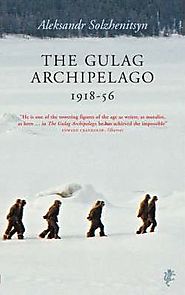
Drawing on his own incarceration and exile, as well as on evidence from more than 200 fellow prisoners and Soviet archives, Aleksandr I. Solzhenitsyn reveals the entire apparatus of Soviet repression — the state within the state that ruled all-powerfully.Through truly Shakespearean portraits of its victims — men, women, and children — we encounter secret police operations, labor camps and prisons; the uprooting or extermination of whole populations, the welcome that awaited Russian soldiers who had been German prisoners of war. Yet we also witness the astounding moral courage of the incorruptible, who, defenseless, endured great brutality and degradation. The Gulag Archipelago 1918–1956 — a grisly indictment of a regime, fashioned here into a veritable literary miracle — has now been updated with a new introduction that includes the fall of the Soviet Union and Solzhenitsyn’s move back to Russia.
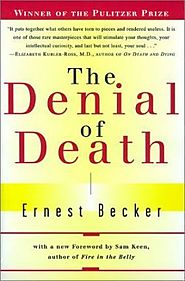
Winner of the Pulitzer prize in 1974 and the culmination of a life’s work, The Denial of Death is Ernest Becker’s brilliant and impassioned answer to the “why” of human existence. In bold contrast to the predominant Freudian school of thought, Becker tackles the problem of the vital lie — man’s refusal to acknowledge his own mortality. In doing so, he sheds new light on the nature of humanity and issues a call to life and its living that still resonates more than twenty years after its writing.
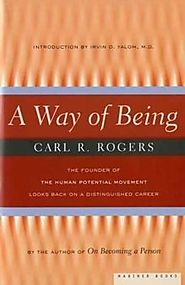
A profound and deeply personal collection of essays by renowned psychologist Carl Rogers
The late Carl Rogers, founder of the humanistic psychology movement and father of client-centered therapy, based his life’s work on his fundamental belief in the human potential for growth. A Way of Being was written in the early 1980s, near the end of Carl Rogers’s career, and serves as a coda to his classic On Becoming a Person. More philosophical than his earlier writings, it traces his professional and personal development and ends with a prophetic call for a more humane future.
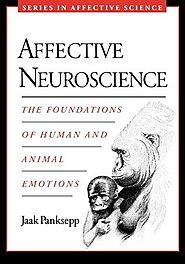
Some investigators have argued that emotions, especially animal emotions, are illusory concepts outside the realm of scientific inquiry. However, with advances in neurobiology and neuroscience, researchers are demonstrating that this position is wrong as they move closer to a lasting understanding of the biology and psychology of emotion. In Affective Neuroscience, Jaak Panksepp provides the most up-to-date information about the brain-operating systems that organize the fundamental emotional tendencies of all mammals. Presenting complex material in a readable manner, the book offers a comprehensive summary of the fundamental neural sources of human and animal feelings, as well as a conceptual framework for studying emotional systems of the brain. Panksepp approaches emotions from the perspective of basic emotion theory but does not fail to address the complex issues raised by constructionist approaches. These issues include relations to human consciousness and the psychiatric implications of this knowledge. The book includes chapters on sleep and arousal, pleasure and fear systems, the sources of rage and anger, and the neural control of sexuality, as well as the more subtle emotions related to maternal care, social loss, and playfulness. Representing a synthetic integration of vast amounts of neurobehavioral knowledge, including relevant neuroanatomy, neurophysiology, and neurochemistry, this book will be one of the most important contributions to understanding the biology of emotions since Darwins The Expression of the Emotions in Man and Animals.
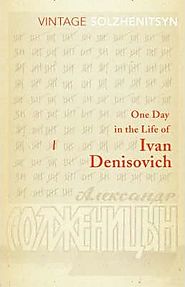
First published in the Soviet journal Novy Mir in 1962, One Day in the Life of Ivan Denisovich stands as a classic of contemporary literature. The story of labor-camp inmate Ivan Denisovich Shukhov, it graphically describes his struggle to maintain his dignity in the face of communist oppression. An unforgettable portrait of the entire world of Stalin’s forced work camps, One Day in the Life of Ivan Denisovich is one of the most extraordinary literary documents to have emerged from the Soviet Union and confirms Solzhenitsyn’s stature as “a literary genius whose talent matches that of Dosotevsky, Turgenev, Tolstoy” — Harrison Salisbury
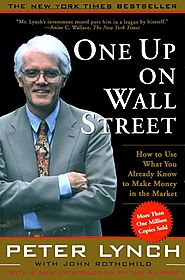
Peter Lynch believes that average investors have advantages over Wall Street experts. Since the best opportunities can be found at the local mall or in their own places of employment, beginners have the chance to learn about potentially successful companies long before before professional analysts discover them. This headstart on the experts is what produces 'tenbaggers', the stocks that appreciate tenfold or more and turn an average stock portfolio into a star performer. In this fully updated edition of his classic bestseller, Lynch explains how to research stocks and offers easy-to-follow directions for sorting out the long shots from the no shots. He also provides valuable advice on how to learn as much as possible from a company's story, and why every investor must ignore the ups and downs of the stock market and focus only on the fundamentals of the company in which they are investing.

In the 1880s, as the European powers were carving up Africa, King Leopold II of Belgium seized for himself the vast and mostly unexplored territory surrounding the Congo River. Carrying out a genocidal plundering of the Congo, he looted its rubber, brutalized its people, and ultimately slashed its population by ten million--all the while shrewdly cultivating his reputation as a great humanitarian. Heroic efforts to expose these crimes eventually led to the first great human rights movement of the twentieth century, in which everyone from Mark Twain to the Archbishop of Canterbury participated. King Leopold's Ghost is the haunting account of a megalomaniac of monstrous proportions, a man as cunning, charming, and cruel as any of the great Shakespearean villains. It is also the deeply moving portrait of those who fought Leopold: a brave handful of missionaries, travelers, and young idealists who went to Africa for work or adventure and unexpectedly found themselves witnesses to a holocaust. Adam Hochschild brings this largely untold story alive with the wit and skill of a Barbara Tuchman. Like her, he knows that history often provides a far richer cast of characters than any novelist could invent. Chief among them is Edmund Morel, a young British shipping agent who went on to lead the international crusade against Leopold. Another hero of this tale, the Irish patriot Roger Casement, ended his life on a London gallows. Two courageous black Americans, George Washington Williams and William Sheppard, risked much to bring evidence of the Congo atrocities to the outside world. Sailing into the middle of the story was a young Congo River steamboat officer named Joseph Conrad. And looming above them all, the duplicitous billionaire King Leopold II. With great power and compassion, King Leopold's Ghost will brand the tragedy of the Congo--too long forgotten--onto the conscience of the West.
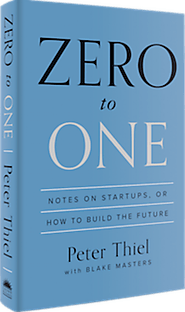
The next Bill Gates will not build an operating system. The next Larry Page or Sergey Brin won't make a search engine. If you are copying these guys, you aren't learning from them. It's easier to copy a model than to make something new: doing what we already know how to do takes the world from 1 to n, adding more of something familiar. Every new creation goes from 0 to 1. This book is about how to get there.
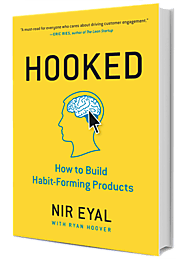
How do successful companies create products people can’t put down?
Why do some products capture widespread attention while others flop? What makes us engage with certain products out of sheer habit? Is there a pattern underlying how technologies hook us?
Nir Eyal answers these questions (and many more) by explaining the Hook Model—a four-step process embedded into the products of many successful companies to subtly encourage customer behavior. Through consecutive “hook cycles,” these products reach their ultimate goal of bringing users back again and again without depending on costly advertising or aggressive messaging.
Hooked is based on Eyal’s years of research, consulting, and practical experience. He wrote the book he wished had been available to him as a start-up founder—not abstract theory, but a how-to guide for building better products. Hooked is written for product managers, designers, marketers, start-up founders, and anyone who seeks to understand how products influence our behavior.
Eyal provides readers with:
• Practical insights to create user habits that stick.
• Actionable steps for building products people love.
• Fascinating examples from the iPhone to Twitter, Pinterest to the Bible App, and many other habit-forming products.
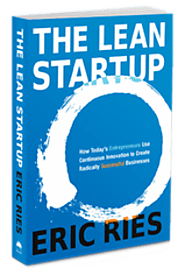
Most startups fail. But many of those failures are preventable. The Lean Startup is a new approach being adopted across the globe, changing the way companies are built and new products are launched.
Eric Ries defines a startup as an organization dedicated to creating something new under conditions of extreme uncertainty. This is just as true for one person in a garage or a group of seasoned professionals in a Fortune 500 boardroom. What they have in common is a mission to penetrate that fog of uncertainty to discover a successful path to a sustainable business.
The Lean Startup approach fosters companies that are both more capital efficient and that leverage human creativity more effectively. Inspired by lessons from lean manufacturing, it relies on "validated learning," rapid scientific experimentation, as well as a number of counter-intuitive practices that shorten product development cycles, measure actual progress without resorting to vanity metrics, and learn what customers really want. It enables a company to shift directions with agility, altering plans inch by inch, minute by minute.
Rather than wasting time creating elaborate business plans, The Lean Startup offers entrepreneurs - in companies of all sizes - a way to test their vision continuously, to adapt and adjust before it's too late. Ries provides a scientific approach to creating and managing successful startups in a age when companies need to innovate more than ever.
